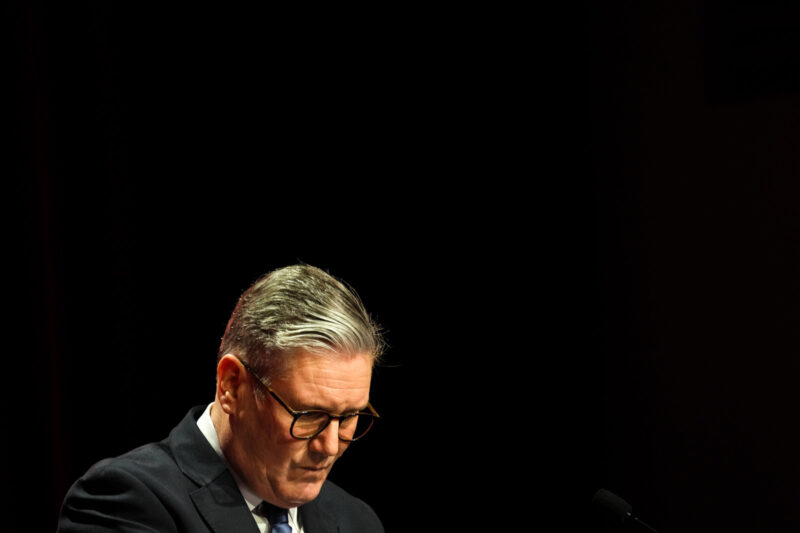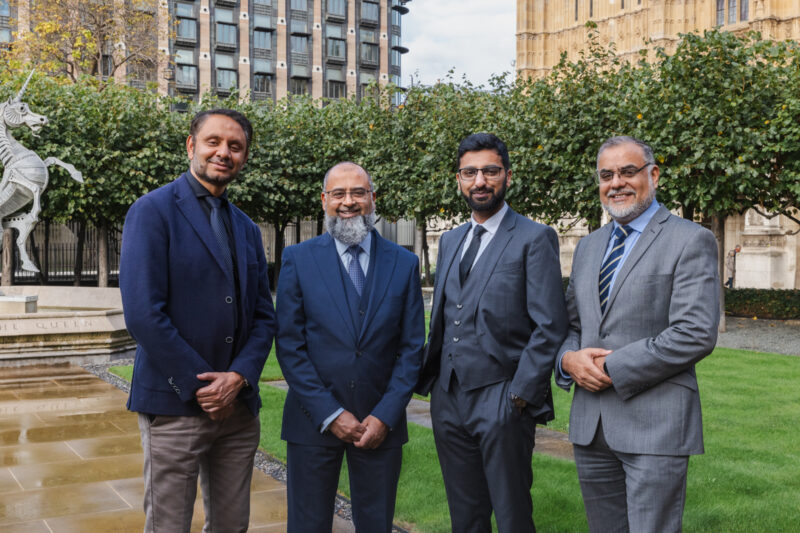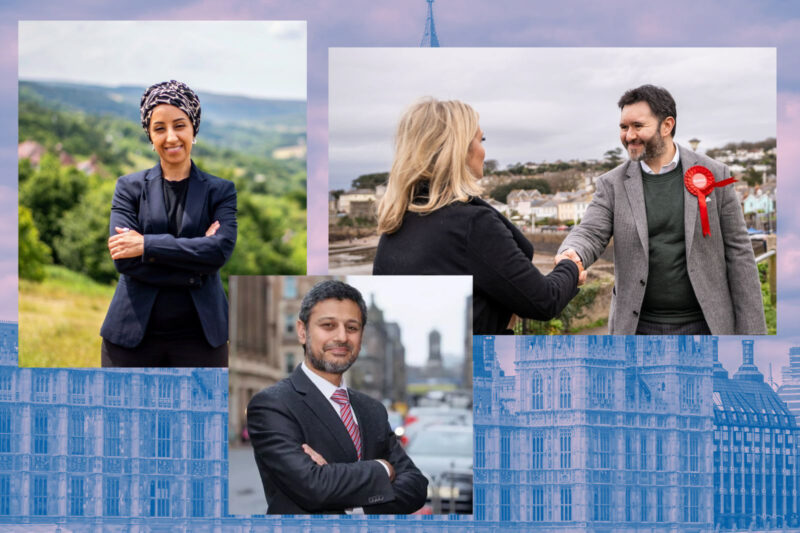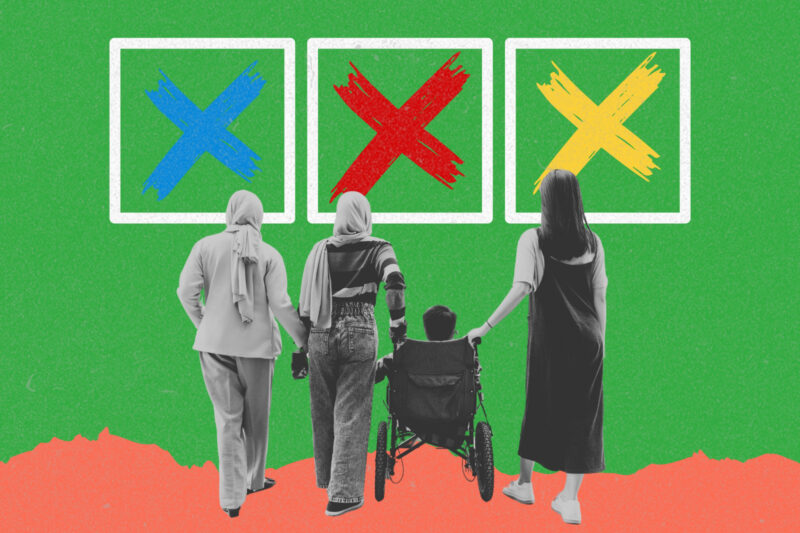The impact of Muslim voters at the 2024 election was even bigger than you think
Labour lost more than 300,000 votes in areas with the highest Muslim populations, leaving it with fewer supporters overall than it had in 2019
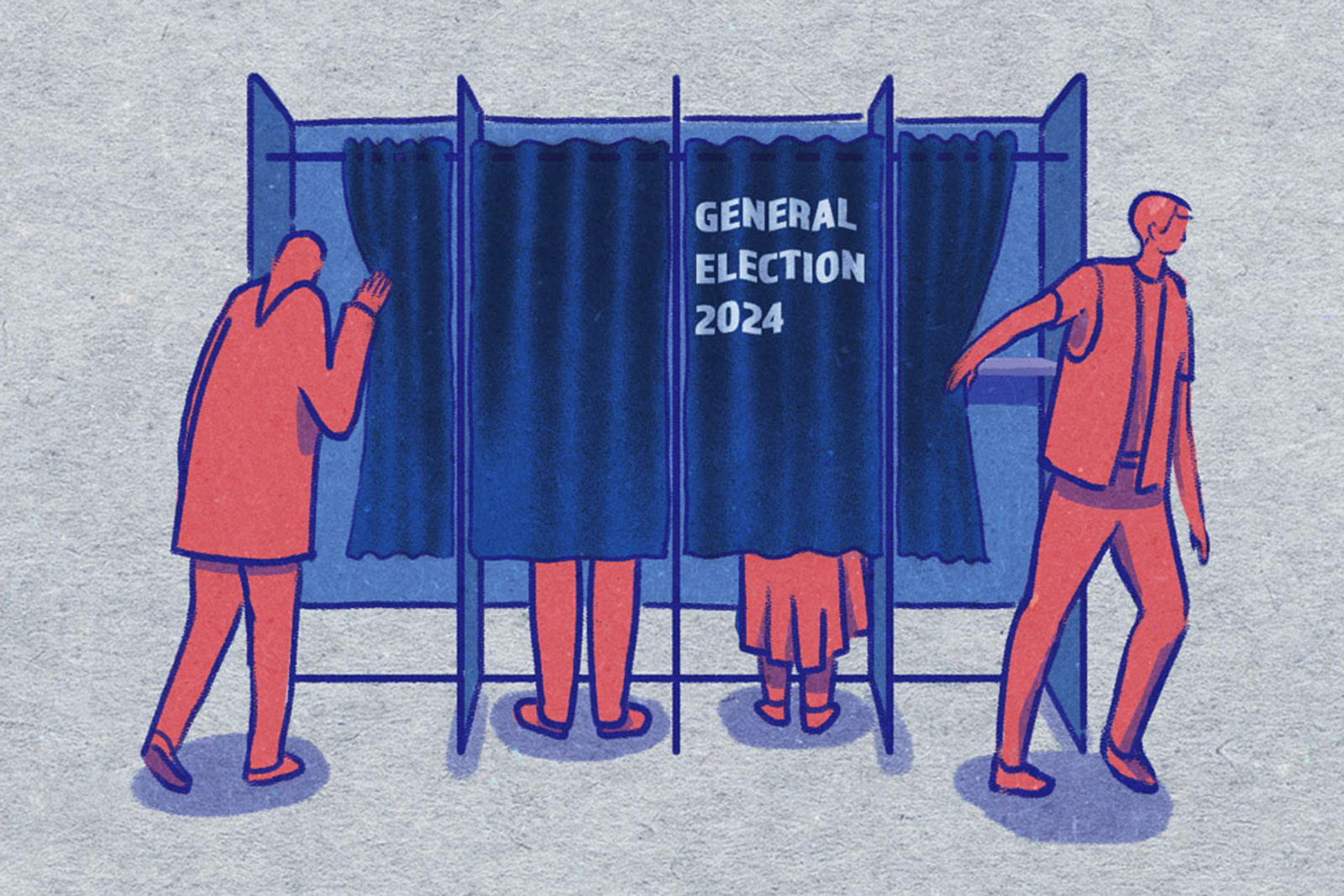
Muslim voters provided one of the shocks of the 2024 general election.
There was a dramatic Labour collapse in the constituencies with the highest proportions of Muslims. My own research over the last 36 hours has found that, in the 21 seats where more than 30% of the population is Muslim, Labour’s share dropped by 29 percentage points from an average 65% in 2019 to 36% in 2024.
Turnout also fell more steeply than average (down 11.2 percentage points) in these seats, suggesting that some disaffected Muslim electors abstained while others voted for other candidates. In these seats, the total number of Labour votes fell from more than 600,000 in 2019 to just under 300,000 in 2024. That is the equivalent of more than half the total national drop in the Labour vote between the two elections (Labour has lost 537,688 votes compared with 2019).
Despite this voting slump, Labour remained the largest single party in the most Muslim parts of Britain, retaining 17 out of the 21 constituencies. The most effective electoral challenge came from locally sourced independent candidates rather than the Workers Party of Britain or the Green party, although both organisations achieved some impressive showings in individual constituencies. Independents were elected in Birmingham Perry Barr, Blackburn, Dewsbury and Batley and Leicester South.
But they failed in Bradford West, despite that seat accounting for the largest single drop in the Labour vote share (44.5 percentage points), because the remaining vote was divided. Similarly, Labour clung on in Birmingham Ladywood following a fightback by the incumbent (and new justice secretary) Shabana Mahmood, as well as some candidate controversies.
Among the defeated Labour candidates was Khalid Mahmood in Birmingham Perry Barr, who had been the sole English Muslim MP at the time of the Iraq war in 2003. There were heavy swings against other Labour MPs, too, though those who had quit the front bench over the party’s position on Gaza (such as Jess Phillips and Imran Hussain) tended to experience smaller vote drops than others. In London’s East End, left-wing Apsana Begum saw her vote share fall by much less (17.3 percentage points) in Poplar and Limehouse than her more leadership-friendly neighbour Rushanara Ali in Bethnal Green and Stepney (39.4 percentage points).
The loss of Muslim votes was also a problem for Labour in some seats with smaller Muslim communities. In the 43 next-most Muslim constituencies (between 15% and 30% of the population), Labour lost another 300,000 votes. That means the equivalent of the entire national drop in Labour’s vote since 2019 happened in these 64 “most Muslim” seats.
All the same, Labour won 40 of these 43 constituencies on election day, losing only the complex and diverse Leicester East to the Conservatives and failing to gain marginal seats from the Tories in Keighley and Ilkley (which voted Labour in 2017) and Harrow East. Keighley and Ilkley was easily the worst Labour result in a marginal, despite Labour’s candidate being the well regarded former MP John Grogan. A low swing and a high Workers Party vote almost cost Labour a gain in Peterborough, and the swings in Hendon and Wycombe were well below average.
The bigger picture
The disaffection of the Muslim vote was an example of a broader pattern in 2024: the failure of either of the big parties (the Conservatives dramatically, and Labour somewhat) to build large, inclusive coalitions of voters around the dividing line of a choice of government.
Communities broke away on political issues and identities — the Reform UK vote was at least as identitarian as the Gaza independent vote, metropolitan liberals (and some Muslims, as in Huddersfield) opted for the Greens, and even the Liberal Democrats were providing campaigning local representatives rather than offering to form a government.
Another aspect of the 2024 election is that party politics has become ever more representative of Britain’s diversity. With 89 MPs from ethnic minority backgrounds (66 of them Labour) the Commons is roughly reflective of the population.
Several Muslim MPs represent constituencies with only small Muslim communities, such as the newly elected Labour MP Sadik Al-Hassan in North Somerset and Conservative Nus Ghani in Sussex Weald. There seems to be no evidence that the faith of the individual candidate, as opposed to political stance, is important to the electorate (the same is true of Muslim voters who supported non-Muslims Jeremy Corbyn and George Galloway, for instance).
Despite the vote slump, Labour remains the predominant party of British Muslims, leading in overall vote share and representing 57 of the 64 constituencies with the largest Muslim communities. Most of Britain’s Muslims — and an even higher share of those in concentrated Muslim communities — have Labour MPs speaking for them at Westminster.
Having those MPs in place gives Labour the opportunity to build bridges painstakingly at local level over this parliament.
Can Labour build bridges?
Labour in government may be able to repair some of the national-level damage to the party’s relationship with Muslim voters. This is, after all, what happened between 2005 and 2010 after a Muslim revolt at the ballot box in response to Blair’s participation in the 2003 invasion of Iraq — despite Labour’s losses nationally in the 2010 election, the party’s vote rose in heavily Muslim constituencies.
This was partly because of the fading away of the Iraq issue, although feelings remained strong and a few British troops remained deployed in Iraq when Britain went to the polls that year. But it was also because of Labour’s record between 2005 and 2010 on domestic policy issues of interest to Muslims: equality legislation, for instance, as well as achievements in reducing poverty and building up the NHS. From Muslim voters’ point of view, the foreign policy offer may have been tainted and less than perfect, but the domestic record was good enough to feel positive again about the party that was by that time led by Gordon Brown.
The other side of the equation from 2005 to 2010 was the declining appeal of anti-Labour forces to Muslim voters. The Liberal Democrats shifted to the right under Nick Clegg and the party’s stance on Iraq was less relevant. Respect split in 2007 and the antics of George Galloway were a poor representation of that political position.
The carriers of the banner in 2024, by contrast, are five disparate independent candidates — four Muslim, plus Corbyn. They make up a parliamentary force potentially equal to Reform UK, but have attracted far less media coverage.
It remains to be seen how most of these individuals act and the extent to which they coordinate with each other. There may be unity on the issue of Palestine, but there are potential problems on domestic issues, how to relate to the Labour government, and any number of personal factors.
To many Muslims in 2024, the balance to be struck was between a gesture of support for Palestine and advancing the domestic policy agenda. Many seem to have felt Palestine was urgent and that Labour’s domestic offer was not appealing enough (and that other voters would ensure a change of government anyway).
If Starmer is as serious about delivery and domestic policy as he appears to be, Labour should be in a better place with sceptical Muslim voters at the next election. His initial appointment of Richard Hermer as attorney general also suggests seriousness about the rule of law in international affairs.
We often read that Starmer is a problem-solving politician above all, and that he is willing to be progressively more radical when dealing with an issue. The 2024 election identified a problem, in that Muslim voters were not prepared to be taken for granted as a building block for Labour’s coalition. The solution is in Labour’s hands: the party can make choices and deliver achievements, in national government and locally, that will attract more support from Muslim voters in future, as it did from 2005 to 2010. The electoral landscape will look different in 2029, and Labour and Muslim voters may well need each other again.
Correction: an earlier version of this article stated below the headline that Labour had lost more than half a million votes in areas with the highest Muslim populations. The correct figure is more than 300,000, as stated in the main body of the article. This has now been amended.
 Newsletter
Newsletter



